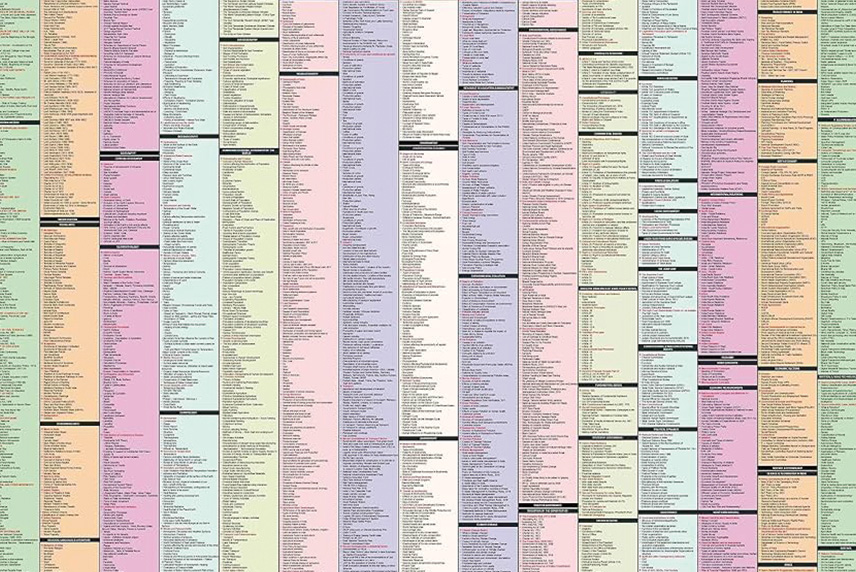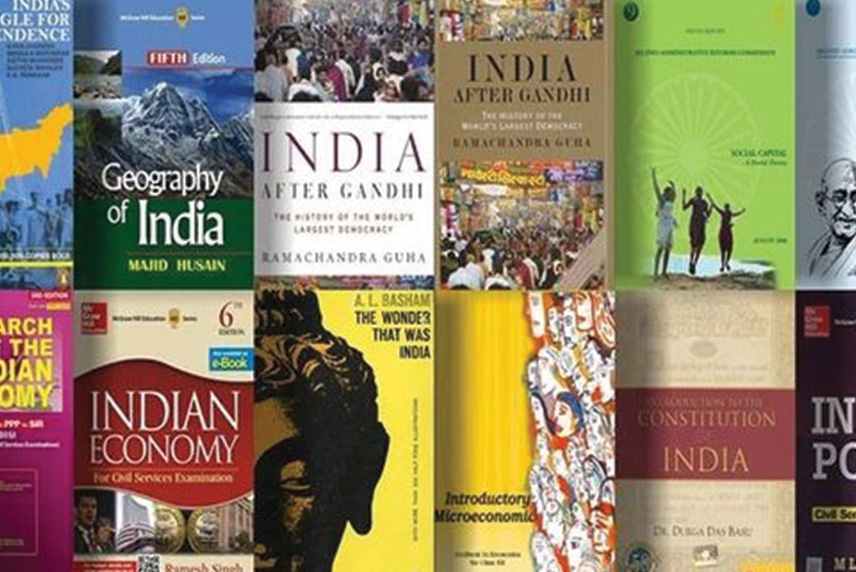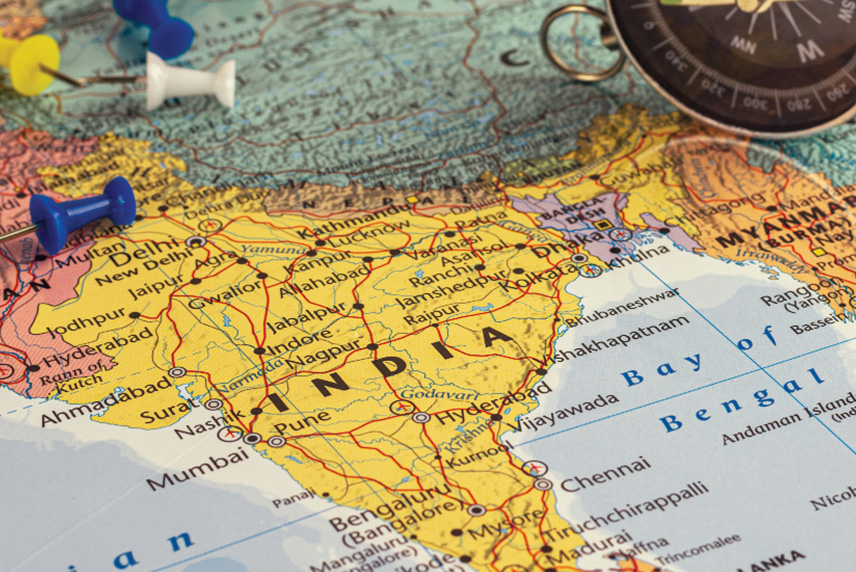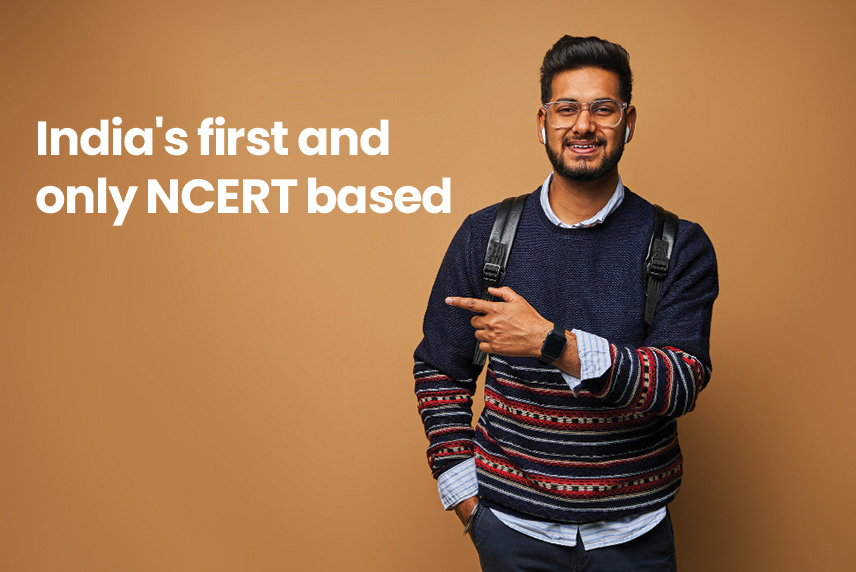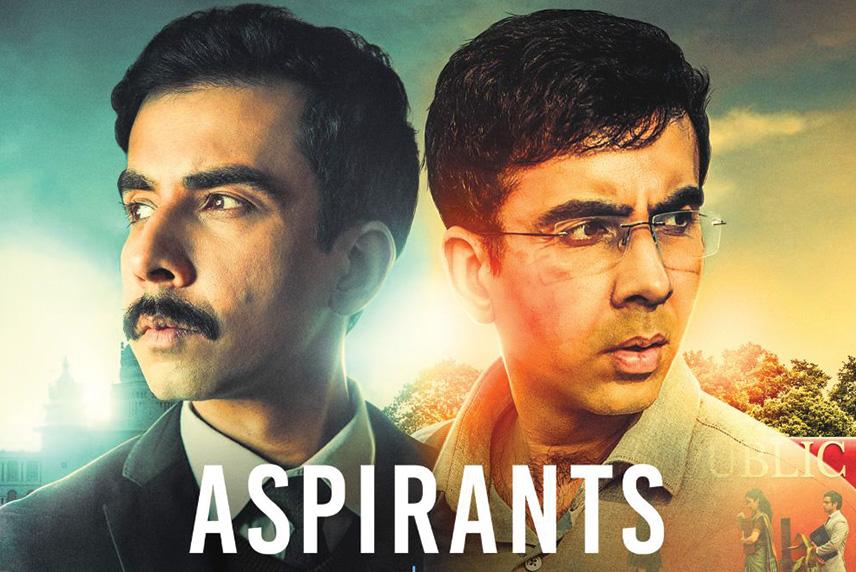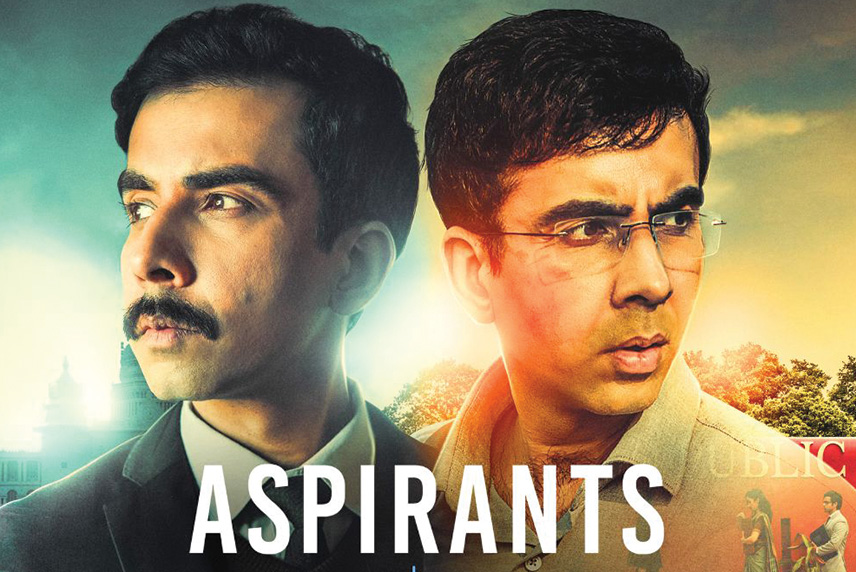UPSC SYLLABUS
The UPSC prescribes a common syllabus pattern for services such as the Indian Administrative Service, Indian Foreign Service, Indian Police Service, Indian Revenue Service (Customs and Central Excise) to name a few.
The Civil Service Exam is conducted in three phases:
Phase 1:Civil Services (Preliminary) Examination (Objective Type)
Phase 2:Civil Services (Mains) Examination (Descriptive Type)
Phase 3: Personal Interview (Personality Test)
Phase 1: Preliminary Examination:
-
Broadly, the Civil Services (Preliminary) Examination consists of two papers of objectivetype, each of 200 marks (hence totalling 400 marks) and of two hours duration. In order to qualify for the Civil Services Mains, a candidate must attempt both the papers.
-
Further, the General Studies (GS) paper consists of 100 questions, while the CSAT paper consists of 80 questions. Both papers have negative marks for wrong answers marked to the tune of 1/3rd of the total marks assigned to that question.
-
To further illustrate this, each correctly answered GS question will be awarded 2 marks. So, 0.66 marks would be deducted from the total for every question that is wrongly marked.
-
Similarly, in the CSAT paper, since we have 80 questions for 200 marks, correctly answered CSAT question would attract 2.5 marks each, while every wrongly marked question would attract a penalty of 0.833 for each such wrong answer, which will be deducted from the total.
-
Questions that are not attempted will not attract any negative marks.
The Preliminary Examination is composed of two components:
1) General Studies (Generally conducted between 9:30 AM to 11:30 AM)
The General Studies test is the first paper of the preliminary examination. This test is intended to test the general awareness of a candidate in a wide range of subjects that include the following syllabus:
Syllabus for GS Paper (Prelims Paper I)
-
Current events of national and international importance.
-
History of India and Indian National Movement.
-
Indian and World Geography - Physical, Social, Economic Geography of India and the World.
-
Indian Polity and Governance - Constitution, Political System, Panchayati Raj, Public Policy, Rights Issues, etc.
-
Economic and Social Development - Sustainable Development, Poverty, Inclusion, Demographics, Social Sector initiatives, etc.
-
General issues on Environmental Ecology, Bio-diversity and Climate Change - that do not require subject specialisation General Science
Civil Services Aptitude Test (CSAT)(Generally conducted between 2:30 PM to 04:30 PM)
-
This test is intended to assess the aptitude of the candidate in solving ‘Reasoning and Analytical’ questions, apart from ‘Reading Comprehension’ and the occasionally asked ‘Decision Making’ questions.
-
The ‘Decision Making’ based questions are generally exempt from negative marks.
-
The preliminary examination is only meant for screening a candidate for the subsequent stages of the exam.
-
The marks obtained in the Prelims will not be added up while arriving at the final rank list.
2) Civil Services Aptitude Test (CSAT) syllabus;
-
Comprehension
-
Interpersonal skills including communication skills
-
Logical reasoning and analytical ability
-
Decision-making and problem solving
-
General mental ability
-
Basic numeracy (numbers and their relations, orders of magnitude, etc.) (Class X level), Data interpretation (charts, graphs, tables, data sufficiency etc. - Class X level)
Phase 2: Mains Examination:
The Mains examination constitutes the 2nd phase of the Civil Services Examination. Only after successfully qualifying the prelims examination would the candidates be allowed to write the Mains examination.
-
The Mains examination constitutes the 2nd phase of the Civil Services Examination. Only after successfully qualifying the prelims examination would the candidates be allowed to write the Mains examination.
-
The Mains examination tests the candidate’s academic talent in depth and his/her ability to present his/her understanding according to the requirements of the question in a time bound manner.
-
The UPSC Mains exam consists of 9 papers, in which two are qualifying papers of 300 marks each:
I. Any Indian Language
II. English Language Paper
Criteria for qualifying the Language Paper:
-
The papers on Essay, General Studies and Optional Subject of only such candidates who attain 30% marks in Indian Language Paper and 25% marks in English Language Paper as a minimum qualifying standard in these qualifying papers, will be taken cognizance of, for evaluation.
-
In case a candidate does not qualify in these language papers, then the marks obtained by such candidate will not be considered or counted.
Structure of the language papers:
The type of questions asked are –
1. Essay – 100 marks
2. Reading comprehension – 60 marks
3. Precis Writing – 60 marks
4. Translation :
English to compulsory language (e.g. Hindi) – 20 marks
Compulsory language to English – 20 marks
5. Grammar and basic language usage – 40 marks
The rest of the seven papers can be written in any of the languages mentioned under the Eighth Schedule of the Constitution of India or in English.
Let us take a look at these papers:
General Studies details Syllabus:
GS Paper 1:
INDIAN HERITAGE AND CULTURE, HISTORY AND GEOGRAPHY OF THE WORLD AND SOCIETY:
HISTORY
Indian culture will cover the salient aspects of Art Forms, Literature and Architecture from ancient to modern times.
(It includes Indian Art and Architecture, Indo-Islamic Architecture (Temples and Forts), Dances forms and Musical Gharanas in India, Festivals and Fairs of India, Language and Literature of India)
Modern Indian history from about the middle of the eighteenth century until the present- significant events, personalities, issues.
(India in eighteenth century, Penetration of Europeans in India, Establishment of British Rule in India, administrative and Political Policy of British Government, Policy of Revenue and Trade, Socio and Religious Reforms, Revolt of 1857 and its consequences, Peasant movements. Partition and Independence of India, Important personalities such as Raja Ram Mohan Roy, Dadabhai Naoroji, W.C Banerjee, Sir Syed Ahmed Khan, etc.
Revolutionary Personalities include Bhagat Singh, Surya Sen, Chandra Sekhar Azad, Lala Hardyal ,Khudiram Bose, Prafulla Chaki etc.)
The Freedom Struggle - its various stages and important contributors /contributions from different parts of the country.
(It includes Congress under the influence of Moderate and Extremist, Bengal Partition, Montagu Chelmsford Reform 1909, First World War and its impact on Indian freedom struggle movements, Home Rule Movement, advent of Gandhi in Indian freedom Struggle, non-Cooperation Movement, Civil disobedience movement, Revolutionary Activities, contribution of foreigners and women, Simon Commission, Round table Conference, Quit Indian Movement etc.)
Post-independence consolidation and reorganization within the country.
(It will cover Integration and consolidation of states, state reorganization Commission, linguistic reorganization, Tribal Integration etc.)
History of the world will include events from 18th century such as industrial revolution, world wars, redrawal of national boundaries, colonization, decolonization, political philosophies like communism, capitalism, socialism etc.- their forms and effect on the society.
SOCIETY
-
Salient features of Indian Society, Diversity of India. (Varna System prevailing in India, Castes, Gender discriminations, regions, Tribes etc.)
-
Role of women and women's organization, population and associated issues, poverty and Developmental issues, urbanization, their problems and their remedies.
-
Effects of globalization on Indian society
-
Social empowerment, communalism, regionalism & secularism.
GEOGRAPHY
-
Salient features of world's physical geography.
-
Distribution of key natural resources across the world (including South Asia and the Indian sub-continent); factors responsible for the location of primary, secondary, and tertiary sector industries in various parts of the world (including India).
-
Important Geophysical phenomena such as earthquakes, Tsunami, Volcanic activity, cyclone etc.,geographical features and their location- changes in critical geographical features (including water-bodies and ice-caps) and in flora and fauna and the effects of such changes.
GS Paper 2:
GOVERNANCE, CONSTITUTION, POLITY, SOCIAL JUSTICE AND INTERNATIONAL RELATIONS:
CONSTITUTION
Historical underpinnings, evolution, features, amendments, significant provisions and basic structure.
(Different provisions and acts introduced by the British Government to unite whole country. Act of 1919 and Government of Indian Act 1935 are important acts in historical underpinnings of Indian constitution.
Features include Federal but unitary in spirit, independent judiciary, secular, relatively combination of flexible and rigid constitution etc.
Amendments include the Procedure to amend the constitution and provisions related to amendments.)
Functions and responsibilities of the Union and the States, issues and challenges pertaining to the federal structure, devolution of powers and finances up to local levels and challenges therein.
(Functions and responsibilities of Union and States Government
-
Constitutional provision related to the federal structure
-
Issues of conflict between state and union governments
-
Constitutional provision related to local bodies
-
Devolution of power and finance to local bodies
-
Various problems plaguing local bodies
-
Separation of powers between various organs dispute redressal mechanisms and institutions
-
Separation of power amongst the legislative, executive and Judiciary
-
Increasing importance of Judiciary and issues related to overreaching the power conferred by the constitution.)
Comparison of the Indian constitutional scheme with that of other countries
(Comparison with constitutions of England, United State of America, Canada, Australia etc.)
POLITY
-
Parliament and State Legislatures - structure, functioning, conduct of business, powers & privileges and issues arising out of these.
-
Structure, organization and functioning of the Executive and the Judiciary Ministries and Departments of the Government; pressure groups and formal/informal associations and their role in the Polity. (Various Pressure Groups such Industry groups, Labor Groups, Student Groups etc.)
-
Salient features of the Representation of People's Act. (It includes various features like ground on which candidates are elected and also grounds on which candidate can be debarred from contesting the election etc.)
-
Appointment to various Constitutional posts, powers, functions and responsibilities of various Constitutional Bodies. (Provision related to Finance Commission, Election Commission, etc.)
-
Statutory, regulatory and various quasi-judicial bodies (It Includes bodies CVC, National Development Council etc.)
GOVERNANCE
-
Government policies and interventions for development in various sectors and issues arising out of their design and implementation.
-
Development processes and the development industry- the role of NGOs, SHGs, various groups and associations, donors, charities, institutional and other stakeholders
-
Welfare schemes for vulnerable sections of the population by the Centre and States and the performance of these schemes; mechanisms, laws, institutions and Bodies constituted for the protection and betterment of these vulnerable sections. (MNREGA can be taken as an example)
-
Issues relating to development and management of Social Sector/Services relating to Health, Education, Human Resources. (NRHM, NUHM, SSA can be taken as an example)
-
Issues relating to poverty and hunger. (Food Security Bill, Public Distribution system, food subsidies etc.)
-
Important aspects of governance, transparency and accountability, e-governance- applications, models, successes, limitations, and potential; citizens charters, transparency & accountability and institutional and other measures.
-
Role of civil services in a democracy.
INTERNATIONAL RELATIONS
-
India and its neighborhood- relations. (Relation with China, Pakistan, Nepal, Bhutan, Bangladesh, Sri Lanka, etc.)
-
Bilateral, regional and global groupings and agreements involving India and/or affecting India's interests (Various trade agreements and regional agreements such as SAARC etc.)
-
Effect of policies and politics of developed and developing countries on India's interests, Indian diaspora. (Various developments at international level that affect interests of India.)
-
Important International institutions, agencies and fora- their structure, mandate. (UNO, IMF, WTO, WHO, etc.
GS Paper 3:
TECHNOLOGY, ECONOMIC DEVELOPMENT, BIO-DIVERSITY, ENVIRONMENT, SECURITY AND DISASTER MANAGEMENT
ECONOMY
Indian Economy and issues relating to planning, mobilization of resources, growth, development and employment.
(Various Five years Plans objectives and causes of failures
-
Mobilization of financial resources for plans
-
Change in patterns of growth and development. Comparing growth between pre reform and post reform eras.
-
Employment issues, measurements, economic reforms and employments, various programs for employment generation.v Inclusive growth and issues arising from it. (Issues related to Poverty and its eradication
-
Financial inclusion
-
Various policies and programs for inclusive growth)
Government Budgeting
(It includes Expenditure of government, Taxation Policies and Different Forms of Budget , FRBM Act and Issues related to Federal Finance and recommendation of Finance Commission)
Major crops cropping patterns in various parts of the country, different types of irrigation and irrigation systems storage, transport and marketing of agricultural produce and issues and related constraints; e-technology in the aid of farmers.
(Its subtopics include Green Revolution, Prospects of Second Green Revolution, concept of evergreen revolution, Rabi, Kharif and Zaid crops.)
Issues related to direct and indirect farm subsidies and minimum support prices; Public Distribution System- objectives, functioning, limitations, revamping; issues of buffer stocks and food security; Technology missions; economics of animal-rearing.
Food processing and related industries in India- scope and significance, location, upstream and downstream requirements, supply chain management.
Land reforms in India
(It includes Abolition of intermediaries, Tenancy reforms, Ceiling on holdings , Consolidation of holdings and cooperative farming.)
Effects of liberalization on the economy, changes in industrial policy and their effects on industrial growth.
(Different components of Economic reforms , Impacts of Economics reforms on growth, employment and Desirability of more economic reforms etc.)
Infrastructure: Energy, Ports, Roads, Airports, Railways etc.
Investment models. (FDI, FII, PPP, etc.)
SCIENCE & TECHNOLOGY
-
Science and Technology- developments and their applications and effects in everyday life
-
Achievements of Indians in science & technology; indigenization of technology and developing new technology.
-
Awareness in the fields of IT, Space, Computers, robotics, nano-technology, bio-technology and issues relating to intellectual property rights
BIO-DIVERSITY, ENVIRONMENT
Conservation, environmental pollution and degradation, environmental impact assessment
DISASTER MANAGEMENT& INTERNAL SECURITY
-
Disaster and disaster management.
-
Linkages between development and spread of extremism. (Such as Roshni for Naxalite affected areas and Himayat for Kashmir.)
-
Role of external state and non-state actors in creating challenges to internal security. (Such as situation in Kashmir and Naxalite problems in India)
-
Challenges to internal security through communication networks, role of media and social networking sites in internal security challenges, basics of cyber security; money-laundering and its prevention
-
Security challenges and their management in border areas; linkages of organized crime with terrorism
-
Various Security forces and agencies and their mandate (Such as CRPF, RAF, NSG, ITBPF)
GS Paper 4:
ETHICS, INTEGRITY AND APTITUDE
This paper will include questions to test the candidates' attitude and approach to issues relating to integrity, probity in public life and his problem solving approach to various issues and conflicts faced by him in dealing with society. Questions may utilize the case study approach to determine these aspects. The following broad areas will be covered:
-
Ethics and Human Interface: Essence, determinants and consequences of Ethics in human actions; dimensions of ethics; ethics in private and public relationships. Human Values – lessons from the lives and teachings of great leaders, reformers and administrators; role of family, society and educational institutions in inculcating values.
-
Attitude: content, structure, function; its influence and relation with thought and behavior; moral and political attitudes; social influence and persuasion.
-
Aptitude and foundational values for Civil Service , integrity, impartiality and non-partisanship, objectivity, dedication to public service, empathy, tolerance and compassion towards the weaker-sections.
-
Emotional intelligence concepts, and their utilities and application in administration and governance.
-
Contributions of moral thinkers and philosophers from India and world.
-
Public/Civil service values and Ethics in Public administration: Status and problems; ethical concerns and dilemmas in government and private institutions; laws, rules, regulations and conscience as sources of ethical guidance; accountability and ethical governance; strengthening of ethical and moral values in governance; ethical issues in international relations and funding; corporate governance.
-
Probity in Governance: Concept of public service; Philosophical basis of governance and probity;Information sharing and transparency in government, Right to Information, Codes of Ethics, Codes of Conduct, Citizen's Charters, Work culture, Quality of service delivery, Utilization of public funds, challenges of corruption.
-
Case Studies on above issues.


